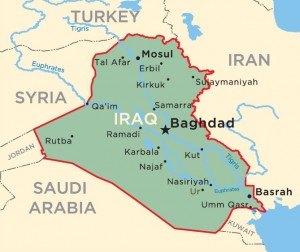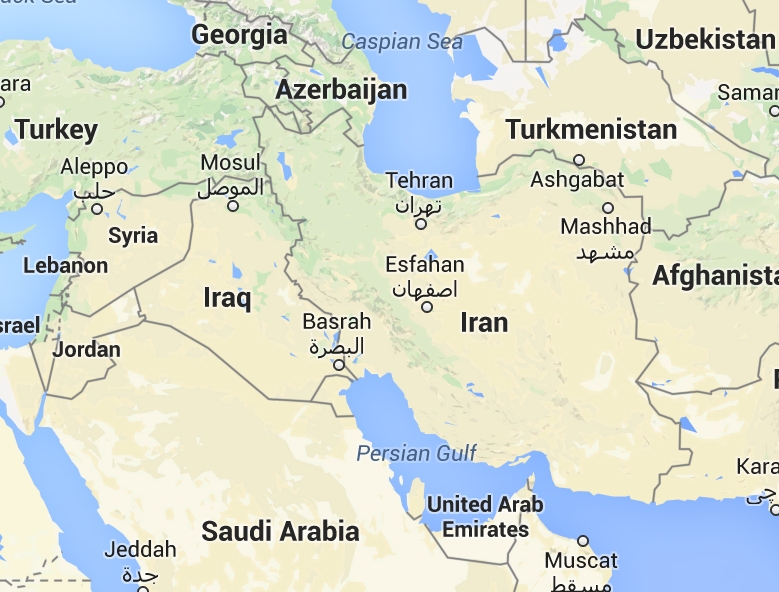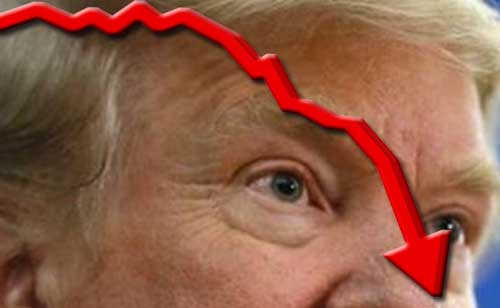 IRBIL — Any American assistance to the beleaguered government of Nouri al-Maliki to push back a jihadist-led Sunni Muslim insurgency needs to take into account the widespread suspicion of U.S. motives across Iraq’s sectarian divide, caution analysts.
IRBIL — Any American assistance to the beleaguered government of Nouri al-Maliki to push back a jihadist-led Sunni Muslim insurgency needs to take into account the widespread suspicion of U.S. motives across Iraq’s sectarian divide, caution analysts.
They say that almost whatever the Obama administration does to bolster Iraq’s Shia Muslim-dominated government, encourage a more inclusive replacement leadership or assist in trying to turn the tide against a Sunni rebellion that swept across western and northern Iraq in the past ten days will be viewed with huge distrust.
Given the unpopularity of the U.S., its actions will be “suspect from either the Sunni or Shia standpoint”, warns Mansoor Moaddel, a sociology professor at the University of Maryland, who has surveyed Iraqi opinion polls stretching back to 2004.
Speaking Tuesday in Irbil, the capital of semi-autonomous Iraqi Kurdistan, U.S. Secretary of State John Kerry repeated President Obama’s insistence that American support for the Iraqi government would be limited.
“The support will be intense, sustained and if Iraq’s leaders take the necessary steps to bring the country together, it will be effective,” America’s top diplomat said after meeting with Kurdish leaders.
Mr. Kerry on his second day in Iraq said al-Maliki should step aside if he is unable to forge a political solution and unify the Iraqi people. Sunni insurgents – and U.S. officials – have accused al-Maliki of pursuing exclusionary pro-Shia policies.
U.S. efforts to bolster the Iraqi government include sending 300 military advisers to help train Iraqi security forces. But an appeal by Iraqi officials for U.S. airstrikes against Sunni insurgents, who are being led by al Qaida offshoot the Islamic State of Iraq and the Levant, have so far been rebuffed. U.S. officials say airstrikes could cause high civilian casualties.
But even limited U.S. intervention – including encouraging the formation of a new government—is fraught with danger. According to Moaddel’s analysis, Americans remain highly unpopular in Iraq.
“Among the Sunnis, the percentage of those who did not wish to have Americans as neighbors fluctuated between 92 percent in 2011 and 99 percent in 2006,” he said. “Among Shia between 86 percent in 2011 and 98 percent in 2006; and among the Kurds between 46 percent in 2006 and 69 percent in 2011.”
In an interview with CNN, Kerry acknowledged the difficulty the U.S. faced in trying to staunch the sectarian bloodshed in Iraq. He said forming a new government that represents all of Iraq’s ethnic and religious groups is a crucial step to whatever the Obama administration might do to intervene in the unfolding crisis.
“The key is, if you don’t have a viable government that is a unity government that is not going to repeat the mistakes of the last few years, whatever we might choose to do would be extraordinarily hampered,” Kerry said.
The U.S. is not the only country whose reaction to the crisis could be hampered by Iraqi distrust. Iran is held in equal suspicion, according to polling data – overwhelmingly so when it comes to Iraqi Sunnis. But a majority of Iraqi Shia Muslims would also prefer if Iran were not a neighbor.
Just a few days ago, Iran’s supreme leader, Ayatollah Ali Khamenei warned against U.S. intervention in Iraq. “The U.S. aims to bring its own blind followers to power since the U.S. is not happy about the current government in Iraq,” he said.
Iran has been a backer of the al-Maliki government and has offered military support.
Analysts say surveys suggest that the majority of Iraqis don’t want the country to divide into ethnic enclaves and that most Sunnis would like to see a separation of politics and religion – but that was before the recent sectarian violence. It is unclear how the conflict triggered by jihadists seizing Iraq’s second largest city, Mosul, will shift opinion.
Sectarian bloodletting risks pushing religious and ethnic groups to the extremes and erasing the middle ground – a dynamic hard to stop once set.
Jihadists in Mosul claimed they killed 1,700 Shia Muslims since taking control of the city. Shia villagers near Mosul told VOA last week that they had heard that 300 Shia and Christian inmates of the city jail had been executed. And Shia Turkmen Monday claimed that al Qaida-inspired Sunni militants carried out a “savage massacre” in four villages near the city of Kirkuk.
The United Nations reported Tuesday that more than 1,000 people, mostly civilians, have been killed so far in June violence in Iraq. U.N. human rights office spokesman Rupert Colville said that figure “should be viewed very much as a minimum.”
Kurdish leaders say they would prefer the country hold together but remain uncertain that is now possible. “We are facing a new reality and a new Iraq,” Iraqi Kurdish President Massoud Barzani told Mr. Kerry today.
- Home
- /
- National/World
- /
- World
- /
- US Motives in Iraq...






